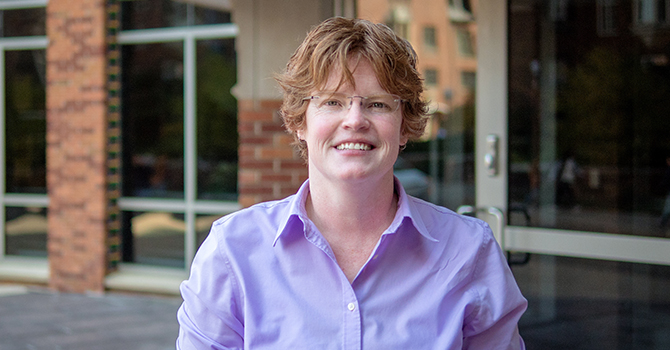Hospital and Molecular Epidemiology
The Hospital and Molecular Epidemiology (HME) concentration emphasizes integrating laboratory methods with the principles and methods of epidemiology and biostatistics as applied to human health. Students obtaining an MPH in HME are poised to start careers in infection prevention, public health practice and as laboratory or project managers.
Curriculum and Program Requirements
The Hospital and Molecular Epidemiology concentration is a 60- credit hour sequence of courses that are typically finished after four terms (two years).
A unique feature of the HME track is that students begin a mentored research experience in a research laboratory during their first term (sometimes, even before!). These mentored research experiences allow HME students to hone their laboratory skills and gain knowledge of the ongoing research in one of the many research laboratories at the University of Michigan. Students have found positions in laboratories in the School of Public Health, the Medical School, the Colleges of Literature, Sciences and the Arts, and the College of Engineering. The laboratory experience can be combined with field experience that integrates laboratory and epidemiologic methods.
View COMPETENCIES AND LEARNING OBJECTIVES
Epidemiology Core Requirements
| Courses | Credits | Term |
|---|---|---|
| Biostats 522 Biostatistical Analysis for Health-Related Studies | 3 | Winter 1 |
| EPID 600 Epid Methods I, Introduction to Epidemiology | 3 | Fall1 |
| EPID 602 Epid Methods II, Data Analysis for Epid Study Design | 3 | Winter 1 |
| EPID 639 R for Epidemiologic Research | 2 | Fall 1 |
| EPID 667 Professionalism Practice and Communication 1 | 1 | Fall 1 |
| EPID 668 Professionalism Practice and Communication 2 | 1 | Winter 1 |
| EPID 669 Professionalism Practice and Communication 3 | 1 | Fall 2 |
| EPID 670 Integrated Problem Solving in Epidemiology 1 | 3 | Fall 2 |
| EPID 671 Integrated Problem Solving in Epidemiology 2 | 3 | Winter 2 |
| Summer Internship (1 credit for every 84 hours worked) | 2-6 | Summer |
| Elective graduate level courses taken to achieve 60 credits |
HME Core Requirements
| Courses | Credits | Term |
|---|---|---|
| EPID 504 Polymicrobial Communities Laboratory | 3 | Fall 1 |
| EPID 582 Molecular Epidemiology | 3 | Winter 2 |
| EPID 680 Hospital Epidemiology I | 3 | Winter 1 |
|
Choose one of the following (Infectious): |
3 | Fall, Winter |
|
Choose one of the following (Pathogenesis and Genetics/Genomics): |
3-4 | Fall, Winter |
In addition to coursework relevant to their chosen concentration, all students in the epidemiology masters program must complete the School of Public Health’s Core Curriculum. Please see concentration pages, linked above, for additional information on concentration-specific prerequisites and curriculum.
| Courses | Credits | Term |
|---|---|---|
| PUBHLTH 500 Investigating Public Health Issues | 6 | Fall 1 |
| PUBHLTH 501 Developing Public Health Solutions | 6 | Winter 2 |
Independent Laboratory Experience
HME students have the opportunity to have a mentored research experience that includes the laboratory. This usually takes place by participating in an ongoing research project under the supervision of a faculty member. Students find placements at Departments all over the University, and many of them are paid as temporary hourly employees. The type of research depends upon what HME students bring with them: someone with extensive laboratory experience might use this opportunity to learn how to integrate epidemiology with laboratory whereas those with limited bench experience may pursue laboratory placements. HME students also may opt to additionally pursue a summer internship, for example, an internship in infection control.
Funding Sources
HME MPH students may receive financial support from one or more of the following sources:
- Grants/scholarships from the School of Public Health.
- Research assistantships from faculty research grants (for the mentored research experiences in the laboratory students are often hired as temporary hourly employees).
- HME students have successfully competed for paid summer internships in infection prevention and control, and at the Centers of Disease Control and state and local health departments, and internationally.
Ready to Apply?
Learn more about our application requirements and deadlines and start your application today. If you’re not ready to apply yet, but would like to receive more information about Michigan Public Health and the program(s) you’re interested in, join our prospective student interest list.
Contact Us
For more information about the admissions process, email our Recruitment and Admissions team at sph-inquiries@umich.edu or schedule an appointment to talk with a member of our Graduate Admissions team.





